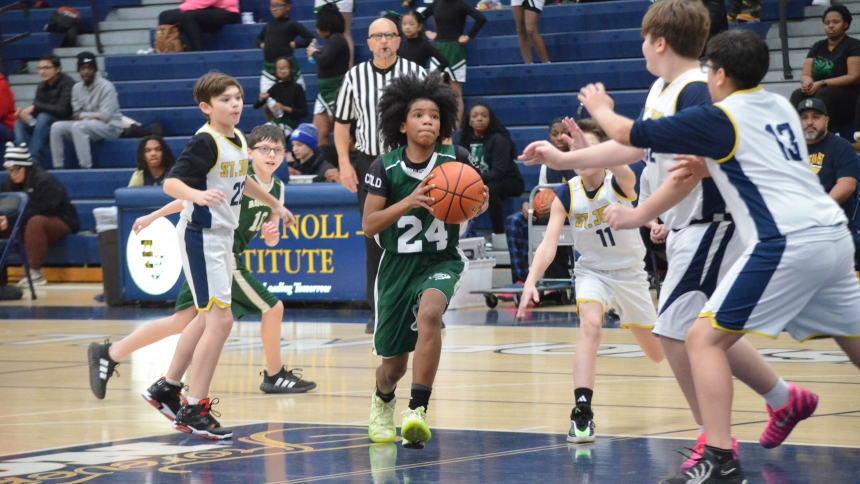
As published in the Northwest Indiana Catholic on January 22, 2017
What can each of us do to build a culture of life? This Monday marks the 44th anniversary of Roe vs. Wade, which legalized abortion in the United States. Since then, millions of innocent, unique and beautiful lives have been snuffed out before they could even be born; millions of mothers, fathers and families have also been deeply wounded by this fundamental injustice and violence.
Our society rightfully punishes people who torture and hurt animals. Why is it legal to take a human life in the most vulnerable and fragile stage? Pirating a film shown on Netflix risks the penalty of whopping fines, but one can abort a child without repercussion. Destroying a bald eagle egg is a federal crime; why isn’t abortion?
I used to pray outside an abortion clinic in Milwaukee and remember a particular grey and cold February Saturday several years ago. About noon, the women who had an abortion that morning emerged from the building, one by one, clutching brown paper bags, looking dazed and despairing, silently waiting for their ride to take them away.
These women appeared as wounded survivors returning from some invisible battlefront, the violence of which was written in their expressionless eyes, etched in their dejected gait. The people who genuinely cared about these women and were trying to help them were the ones standing outside in the sleet and chill, not the ones committing violence inside.
The Church needs to raise her moral voice consistently against racism, capital punishment, poverty, violence, human trafficking and every other form of human degradation. The consistent ethic of life compels Christians to work for a civilization of love which accepts, respects and helps every human being to reach their God-given potential as a beloved child of the Father. Human life in the womb is supported by nutrition, medical care and a warm environment of safety, love and peace for every expectant mother.
Poverty, unemployment and lack of functional family structure often make abortion seem the only way out of a desperate situation for many. This sad truth shows the fundamental linkage between all of the social issues. We cannot address or heal one without looking at the complexity of the entire moral and social context.
The consistency of the Catholic Church’s moral teaching is inherent and strong because the Church views the human person in the widest and deepest network of relationships, values and facets of meaning. Politics, economics, government, marriage and family, work, culture, entertainment, means of communication, art and literature, sexuality and fertility all contain moral dimensions, in that each aspect of our society is either humanizing and helping people utilize their gifts, build up the common good, make a loving gift of themselves to others and realize God’s will or is contributing to violence, division, degradation, violence, poverty, sin and a diminishing of the human project.
The Church can never tire of prophetically proclaiming that every human life matters, that each person is equally important, that differences such as race, economic status, religion and political commitments do not diminish or dehumanize us, but actually make us stronger and better. Abortion, racist slurs, assisted suicide, systemic poverty, capital punishment and euthanasia are all acts of violence. We can never passively tolerate these sins against human life and dignity or give up on trying to heal our culture.
Maybe, becoming more aware of the power of words and how we use them to affirm and love is a small and practical way to promote human dignity.
I was struck by the following thoughts of Hosffman Ospino, a theology professor at Boston College, as quoted in the monthly pamphlet, Give Us This Day:
“I am particularly fascinated with the simple words we use to refer to people in the everyday of our lives. These are the words we often take for granted, but in the end are perhaps the most important.
“Think, for instance, of these words: mom, dad, friend, pastor, guide, teacher, sister, brother, doctor. Each unveils an entire universe of meaning. They simultaneously acknowledge and confer being. They imply profound relationships. They capture the essence of being human in the particular.
But there are also words we use in not-so-gracious ways to identify others: illegal, minority, alien, worthless, enemy. They say more about what is in the heart of the one who speaks them than they say about the individuals or groups so identified. These words embody one’s failure to recognize the fullness of humanity of the other. They hinder the flourishing of relationships. They prevent us from contemplating the imago Dei - the image of God in our midst.
“In the Scriptures God calls us children…elect…living stones…beloved…saved.”
How many of us carry wounds from hurtful names we were called as children or are sometimes debilitated by the “negative tapes” that can play inside our heads, telling us that we are bad, stupid or will never amount to anything?
In looking both at others and ourselves, we need to go beyond the labels of fetus, prisoner, drug addict, homeless, poor, old or young. Building a culture of life requires that we call each person by their proper and deepest name: a brother or sister in Christ, a beloved child of God, a fellow companion on the way.
+ Donald J. Hying


